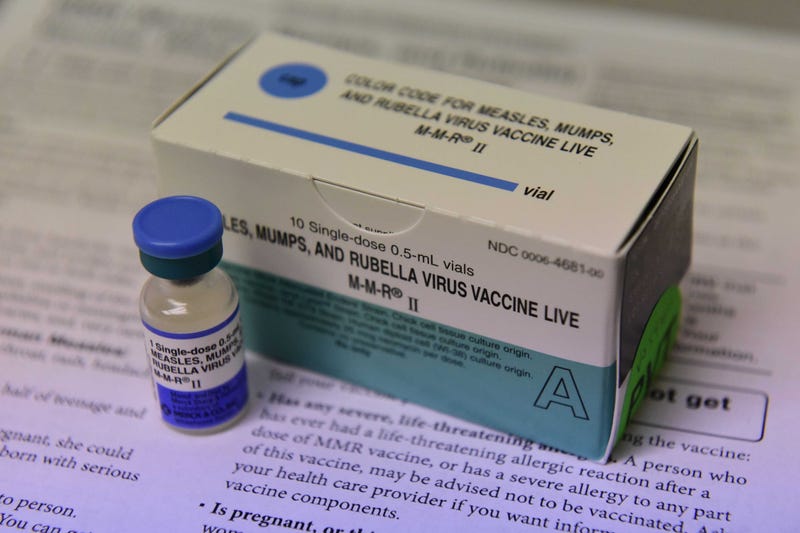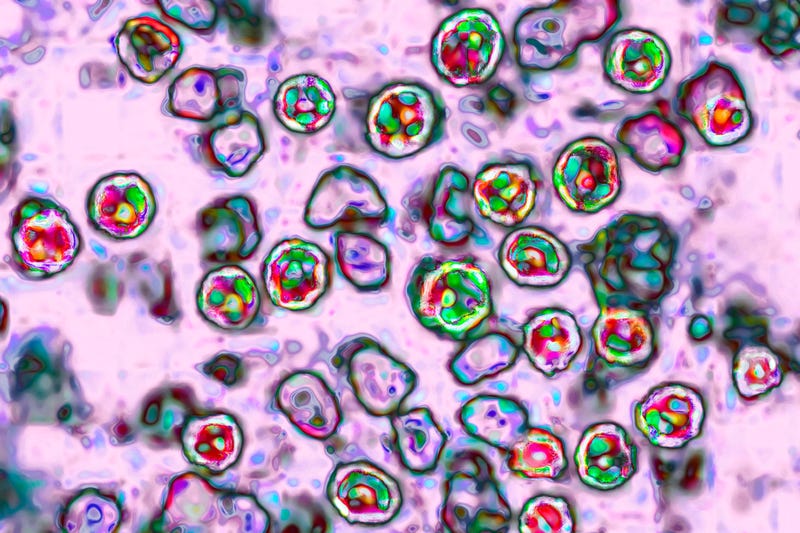
NEW YORK (1010 WINS) – The New Jersey Department of Health confirmed three measles cases on Thursday, adding to growing concerns as cases and hospitalizations rise across the United States, including in Texas, where an unvaccinated child recently died from the disease.
The cases trace back to a single laboratory-confirmed infection reported on Feb. 14 in a Bergen County resident who had recently traveled internationally, according to an alert on the department's website. Within days, two additional cases were identified in individuals who had close contact with the initial patient.
All three individuals were unvaccinated and had been under quarantine, minimizing the risk of further exposure, officials said. So far in 2025, New Jersey has reported three measles cases, compared to seven in 2024.
The health department said it is working with local officials to identify and notify anyone who may have been exposed while the individuals were infectious. Officials are urging residents to stay up to date on routine vaccinations, particularly the measles, mumps, and rubella (MMR) vaccine, which is highly effective in preventing infection.
The New York State Department of Health also issued a health advisory Thursday in response to rising measles cases.
Vaccination rates for measles continue to fall below the level that is necessary to protect communities statewide, the NYSDOH warned. In an effort to address low-vaccination areas, the department is urging New Yorkers to vaccinate their children against the disease.
“As a pediatrician and the State’s doctor, I want to remind everyone that immunization is safe and the best protection for your children against measles and other potentially deadly diseases,” said State Health Commissioner Dr. James McDonald. “I encourage anyone not vaccinated against measles to receive at least one dose of the Measles, Mumps, and Rubella (MMR) vaccine and get their children vaccinated with two doses.”
So far in 2025, two measles cases have been reported in New York City, with no cases confirmed in the rest of the state. In 2024, New York recorded 15 cases, 14 of which were in New York City. Measles spreads through respiratory droplets when an infected person coughs or sneezes.
Measles can spread through direct contact with an infected surface or by breathing in the virus. Up to 90% of unvaccinated individuals or those whose vaccine was ineffective—will contract measles if exposed.
The NYSDOH cautioned that current MMR vaccination rates among two-year-olds have fallen far below the herd immunity threshold in every county in New York State.

States are stepping up efforts to encourage vaccination after Texas health officials confirmed the first U.S. measles-related death in nearly a decade. The unvaccinated school-aged child died Tuesday night amid Texas’ largest measles outbreak in nearly 30 years, which has spread to 124 cases across nine counties since last month.
Robert F. Kennedy Jr., the nation’s top health official and a known vaccine critic, downplayed the outbreak on Wednesday, stating that the U.S. Department of Health and Human Services is monitoring the situation and calling it “not unusual.”
Symptoms of measles typically appear 7 to 14 days after infection, though they can take up to 21 days to develop. According to the NYSDOH, early signs include a high fever (which can spike above 104°F), cough, runny nose, and red, watery eyes.
Health officials emphasize that vaccination remains the most effective way to prevent measles.
The MMR vaccine is safe and highly effective at preventing infection and severe illness. The CDC recommends the first dose for children between 12 and 15 months old and a second dose between ages 4 and 6. The vaccine is required for children entering kindergarten in public schools nationwide.
While most children recover from measles, the disease can lead to severe complications, including pneumonia, blindness, brain swelling, and death.
Since the COVID-19 pandemic, vaccination rates have declined nationwide. Most states now fall below the 95% vaccination threshold necessary to prevent widespread measles outbreaks.
The Associated Press contributed to this report.
